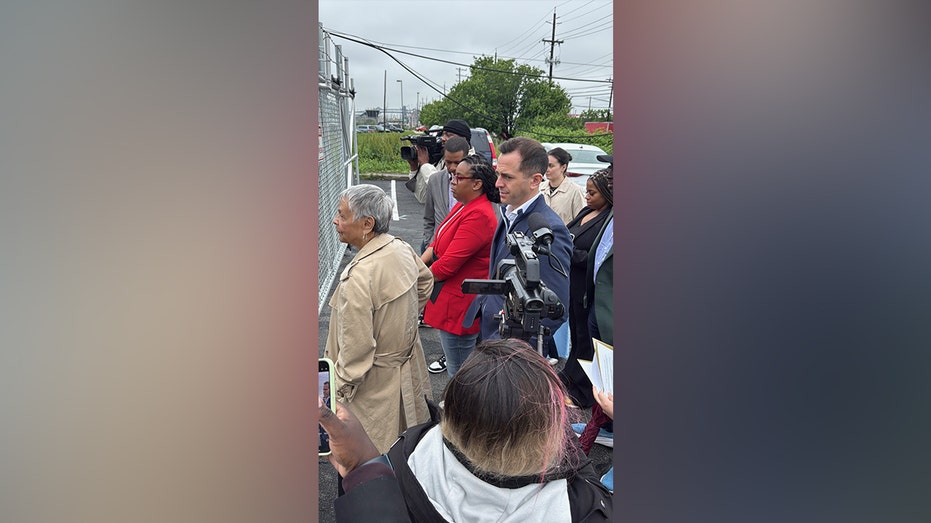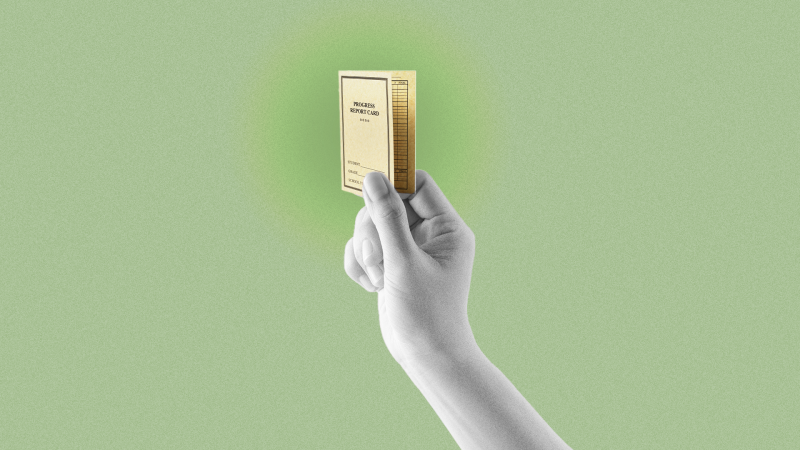The hidden consequences of being banned from dating apps
Mashable spoke to former Hinge and Tinder users about being banned from the dating apps and how it impacts their love lives.


When Mimi*, 22, was in college, she created a fake profile on the dating app Hinge to report another phony account. Someone was impersonating her then-boyfriend on the app, and the couple wanted to report this account together. "I didn't think much of it at the time," she says. But two years later, single and living in New York City, Mimi turned back to Hinge, this time in a real attempt to try online dating and meet someone new. She quickly discovered she had been banned.
Trying to reverse the situation, Mimi wrote a complaint to Hinge, outlining her circumstances in a few brief sentences. She wanted to use the app to restart her dating journey, preferring it over Tinder, Bumble, Raya, and the other seemingly countless options out there. Her appeal didn't help, though. Mimi says Hinge sent back a "somewhat automated response," telling her she had been permanently banned from using the app. She gained no further clarity from the email, with Hinge providing no other details.
Mimi isn't alone in experiencing seemingly arbitrary and unfair bans from Hinge. Over the last three years, over 15,000 users have filed complaints about Hinge with the consumer advocacy group Better Business Bureau, many claiming to have been unfairly exiled from the app. Most of these users said the bans were irreversible. In the last year alone, Hinge received over 7,000 reports on the same platform. "I was unjustly banned from Hinge," reads one complaint. "I have not acted in any unlawful or inappropriate manner while using Hinge on or off the app," complains another.
This Tweet is currently unavailable. It might be loading or has been removed.
Karma, 23, is based in New Delhi and tells Mashable she found most of her dates in the city via Hinge — that is, until she was banned from the app earlier this year. She isn't entirely sure why it happened. "I wasn't provided with any clear-cut reason," she says. She has a hunch, though. At some point, she asked a few matches to participate in a survey she was conducting, sending out a link in direct messages. People may have reported her "out of annoyance," she says.
"When it comes to bans, a lot of people report accounts out of sheer spite, and Hinge should really look thoroughly into the matter before banning a person straight away," she says. "I think using the app for non-dating purposes isn't a bad thing. Or, at least for petty reasons as such, [they] should start with a warning."
Hinge is "committed to keeping daters safe by using protocols that protect the integrity of [the] community," Tamika Young, Hinge's VP of global communications, tells Mashable.
"If someone believes they were incorrectly removed from the platform, they are encouraged to submit an appeal directly in the app or via email. Every appeal is reviewed by a human moderator," continues Young. She pointed towards Hinge's Help Center and Terms of Service. Within the help center, the company explains that users get explanations for some appeal decisions, but not for others.
Tinder takes "appropriate actions on accounts" that have violated the app's Terms of Use, Community Guidelines, or Policies, Philip Price Fry, VP of communications at the platform, tells Mashable. "Tinder uses a combination of AI and human moderation to detect these violations, and we work hard to reduce any wrongful removals from our platform," Fry tells Mashable. "If a member believes their account was banned in error, they can appeal from the Appeal Center within the app."
Of course, there are valid reasons for bans, from predatory behaviors to catfishing. Match Group, which owns Hinge, Tinder, and other dating apps, has recently come under fire for reportedly concealing assault cases and failing to ban users accused of sexual assault, even after reports were made directly to the company. Three in four dating app users have experienced abuse on these platforms, according to a 2022 study by the Australian Institute of Criminology. Staying safe on dating apps is imperative. Apps have introduced a selection of safety features over the years, such as Tinder's contentious background check option and Hinge's "Hidden Words" feature, which lets users filter out unwanted content.
At times, seemingly random bans may be a widespread consequence of efforts to combat abusive behaviors, affecting those who are simply trying to meet someone. "Platforms are really trying to push back against bots and a lot of bad and inappropriate behaviors that come up," says Liesel Sharabi, an associate professor at Arizona State University specializing in the intersection of technology and relationships. "So I think that they're getting seemingly stricter about the bans."
Why are bans on Tinder and Hinge becoming so common?
Across X and TikTok, dating app users allege these bans have been imposed on them, and they are left to speculate why.
Most say whatever got them banned is unclear. Some think it's because of revenge reporting: ex-partners or unhappy matches report accounts out of malice. Some report being banned after ghosting matches (a repercussion Bumble formally introduced in 2023). Others say their accounts appeared too bot-like, even when they were real. In Mimi's case, creating a new account could have been a problem; according to The Tab, this is one of the many "innocent" actions that can get you exiled from the land of digital dating. There have also been discriminatory reasons for bans: in 2019, trans people were getting banned from Tinder as a result of people reporting them unfairly. Tinder acknowledged the issues trans people face on the app, releasing a statement declaring their commitment to inclusivity.
On the Reddit forum SwipeHelper, a group dedicated to dating app qualms and queries, several users express confusion and even helplessness thanks to what they consider to be arbitrary bans. People complain the most on the subreddit about Tinder and Hinge and say that appeals are essentially useless, as cases like Mimi's show. Some said that once they were banned on Hinge, the same happened on Tinder, rendering both unusable.
This Tweet is currently unavailable. It might be loading or has been removed.
This Tweet is currently unavailable. It might be loading or has been removed.
These bans are becoming increasingly common, says Sharabi. She posits that many users don't read the terms of service on apps and end up getting inadvertently exiled. (Hinge was unable to provide how many users it bans year over year.)
"I think what's missing for a lot of people is the explanation," says Sharabi. "And for some people, that's going to be obvious, like they were misrepresenting themselves or something really blatant. But for other people, I think it's a lot more ambiguous, and they don't necessarily know how they can challenge that decision, or who they can talk to to have it reconsidered. They want to know what they did." She adds that people don't necessarily know how a decision can be challenged or reconsidered, leading to "a frustrating experience."
Mimi says she appreciates the security measures being taken by apps, but thinks that both the banning and appeal processes need reform. "It really does seem like their responses [to appeals] are completely automated, and I haven't heard of a single case in which someone who wrote an appeal had their ban removed," she says. "If they're putting in so much effort to get rid of bots, then they should stop acting like bots themselves." As with most large tech companies with vast user bases, this is unlikely to change: most will turn to automated solutions to sift through such reports.
"If they're putting in so much effort to get rid of bots, then they should stop acting like bots themselves."
In response to this dilemma, people have come up with some solutions to surpass bans themselves. On TikTok and Reddit, people suggest getting a new phone or number and using a fresh email address, although these fixes can easily lead to bad actors — who have been justifiably banned — managing to get back on these apps after getting removed. Some also say DatingZest, a platform created for the sole purpose of getting banned users back on the apps, has worked for them (others have pointed out that the service hasn't always done the trick). In a statement to Mashable, DatingZest says it has helped "countless users" make comebacks on apps, especially when it comes to Hinge. The platform was created after its team realized "how many innocent users get banned due to dating apps' automated systems, sometimes from a single false or revenge report."
"The lack of transparency and inconsistent moderation is a major frustration for many daters," says DatingZest.
While some quick fixes are available to users, the problem goes deeper. In recent years, despite the ubiquity of online dating, people have faced serious swipe fatigue and felt a lack of trust in these apps. When it comes to the digital platforms that have become fundamental tools for matchmaking, frequent bans are just another cause for concern.
Getting in the way of love — and matches
Today, it almost goes without saying that dating apps are central to dating culture. Heterosexual couples are more likely to meet online than in person, as researchers at Stanford University found in 2019. 53 percent of Americans under 30 report using such platforms at some point in their lives, according to 2023 data from the Pew Research Center.
So when someone is banned from a prominent dating app, the effects — both perceived and in practice — are real. "Dating apps have become the single most common way that people meet in the U.S.," says Sharabi. "And so if somebody is getting banned from a dating app, that can seem like a minor thing, but it's actually quite a big deal. It's the equivalent of getting kicked out of the most popular club in town where everyone's meeting and you're now no longer allowed to enter."
Karma says getting banned from Hinge left her feeling uneasy. She says her experience with meeting people on Hinge, compared to other apps in India, was a positive one. "We can always meet new people at social events but Hinge was a very convenient way to do that," she says.
"It's the equivalent of getting kicked out of the most popular club in town where everyone's meeting and you're now no longer allowed to enter."
Mimi, similarly, says that she didn't think the ban would be "that big of a deal" at first. "But when you're out there on weekends, trying to meet people, that's when you realize it's simply not how it's done anymore," she tells Mashable. "The easiest way [to meet someone] is to do it digitally."
"I think being banned from these apps definitely has social ramifications," Mimi says.
Sharabi says that these bans can be scary for people, especially those who have been reliant on them in the past. "I think for people that are single and looking to date, there can be this feeling that they have to be on the apps to be successful," she explains. She also says that this dependence on apps begs the question of social utility: "They're providing a pretty essential service to people."
However, she senses a potential shift on the horizon. Sharabi mentions the onset of AI and its effects on dating, with its potential to improve the dating app landscape. She suggests that AI could help apps "reconfigure how they're matching people and re-examine how they're helping people form relationships." For users, AI has been increasingly wielded to help write profiles or craft messages. But she also says young people are leaning toward surrendering apps entirely to meet people face-to-face. But, as the numbers suggest, apps are still not going anywhere — and can't be ruled out.
Mimi is one example: someone caught between exploring the world of online dating and wanting to forge connections outside of these platforms. She says she would love to meet someone in person now. "That's the dream, isn't it?"
* Names changed for privacy.















![Ditching a Microsoft Job to Enter Startup Hell with Lonewolf Engineer Sam Crombie [Podcast #171]](https://cdn.hashnode.com/res/hashnode/image/upload/v1746753508177/0cd57f66-fdb0-4972-b285-1443a7db39fc.png?#)





























































